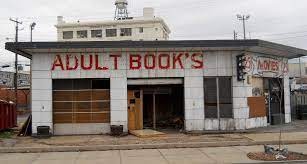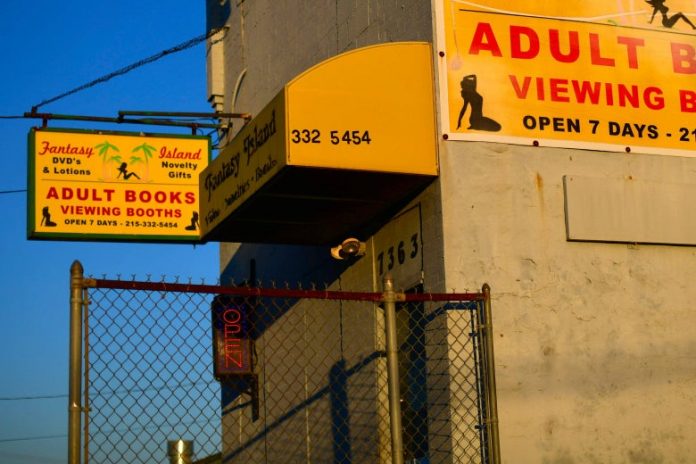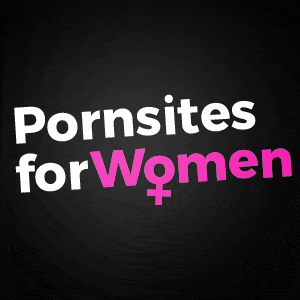Who’d Have Thunk It? The ‘Secondary Effects’ Doctrine is Built on Bullshit
Think about the adult businesses in your area — the strip clubs, video stores, bookshops, etc. — and ask yourself this: If those businesses were allowed to locate wherever they’d like, would they be anywhere near this spot?
The answer might be yes for a lucky few, but in most places, cities and towns have a tendency to push adult businesses into out of the way places, keeping them away from prime locations, wealthier neighborhoods and the kind of high-traffic areas that many businesses prefer.
Cities and towns can do this because zoning laws include a kind of end-run around the First Amendment, a lovely bit of reasoning known as the “secondary effects” doctrine. It’s a doctrine that lets the government argue that when they regulate adult businesses, it’s not because those businesses engage in or encourage expression of which the government disapproves, it’s because those businesses draw in a “bad element” or encourage crime, or cause rifts in the sidewalk through which Satan himself might emerge, or whatever.
But what does the data indicate? Do adult businesses cause an increase in crime when they move into a new spot? Is it truly reasonable to hold a strip club responsible for the actions of some bug-eyed meth dealer who lives six blocks away?
Get the scoop in Calico’s new post, “Who’d Have Thunk It? The ‘Secondary Effects’ Doctrine is Built on Bullshit”
by Calico Rudasill, Sssh.com Porn For Women and Couples

Read on…
While this space is generally reserved for silliness and weirdness related to sex, mostly because the bulk of my brain’s capacity seems to be reserved for coming up with silliness and weirdness related to sex, I have on occasion dipped into more serious territory.
One such territory is the so-called “secondary effects doctrine,” a bit of legal sleight of hand by which governments in the U.S. manage to regulate sexual expression indirectly, allowing them to keep sexually-oriented businesses from popping up in inconvenient places without running afoul of the First Amendment.
What is the Secondary Effects Doctrine?
As David L. Hudson, Jr. of the civil liberties organization Foundation for Individual Rights in Education (FIRE) puts it, the secondary effects doctrine “allows government officials to treat patently content-based laws as content-neutral.”
“The animating logic is that government officials are not suppressing speech because of its content but because of adverse side effects associated with the speech, such as increased crime or decreased property values,” Hudson continues, noting that the doctrine first popped up 1970s, “as government officials grappled with a proliferation of adult bookstore and theater businesses in cities and towns.”
To avoid things like adult shops popping up in neighborhoods filled with wealthy people who are equipped to complain very effectively to their elected representatives, or too near to churches, or too near each other, “government officials sought to combat the spread of these businesses with a cadre of zoning and licensing restrictions.”
But as many First Amendment scholars and just about any attorney who has ever represented a brick-and-mortar adult business have noted over the years, the doctrine is easily manipulated by those who want to suppress sexual expression.
“A court that wishes to escape the consequences of a content-based regulation can simply categorize it as an indirect burden on speech involving ‘secondary effects,’” Hudson notes, quoting First Amendment scholars Jerome Barron and C. Thomas Dienes.
“Thus, the doctrine has proven to be fertile ground for abuse, empowering government officials to act on their thinly disguised dislike for adult entertainment that otherwise would be entitled to First Amendment protection.”
What Does the Data Say?
Whatever else one might think about secondary effects doctrine, you might hope that it is at least backed up by solid data – you know, things like studies showing that crime rates are indeed higher in areas where adult businesses are located.
Spoiler Alert: This sort of secondary effects-supporting data does not appear to exist. In fact, the folks who have crunched the numbers in detail found the opposite of what the secondary effects doctrine suggests.
In their paper “The Effect of Adult Entertainment Establishments on Sex Crime: Evidence from New York City” (catchy title, eh?), economists Riccardo Ciacci and María Micaela Sviatschi looked at “how the presence of adult entertainment establishments affects the incidence of sex crimes.”
Did they find that neighborhoods with “adult entertainment establishments” are also hotbeds of sex crimes? No, they did not.
“We find that these businesses decrease sex crime by 13% per police precinct one week after the opening, and have no effect on other types of crime,” the economists note in their abstract. “The results suggest that the reduction is mostly driven by potential sex offenders frequenting these establishments rather than committing crimes.”
Now, I’m not so sure about that last conclusion, which stinks a bit of treating correlation as causality to me – but I’m also not the one who did the study and I haven’t done a deep dive into the data collected by Ciacci and Sviatschi.
(Side note: “Ciacci & Sviatschi” would be a great name for a law firm, wouldn’t it? Or maybe a folk singing duet? I mean c’mon, “Simon and Garfunkel” has nothing on “Ciacci and Sviatschi”! Except for actual existence and a full catalog of hit songs, I suppose.)
The Data Has Never Supported the Doctrine
I’m sure the politicians, zoning officials and others who rely on the secondary effects doctrine would say that one study in New York doesn’t disprove anything. They’d probably aslo point to studies of their own, written by people paid by the government and who have a vested interest in finding evidence to support the government’s claims, but I’ve been around the block enough times to know that if you look into this question deeply, you’ll find plenty of other data that contradicts the doctrine.
For instance, if the presence of adult businesses causes surrounding property values to plummet, as proponents of the doctrine have long claimed, one might expect the city with the highest number of strip clubs per capita to have very cheap real estate, too, right? Well, ask anyone who lives in Portland, Oregon about that and see what they have to say.
And if you aren’t inclined to believe what a resident of Portland might say about it, there’s always looking at the data directly.
To me, the bottom line is clear: The secondary effects doctrine is nothing more than loophole through which the government can dictate terms to adult businesses – and to present those businesses with enough hoops to jump through that they eventually give up and simply take whatever locations the government will approve.
More outside the box adult entertainment at Wasteland.com – click here,








 Erotic Cinema For Discerning Adults
Erotic Cinema For Discerning Adults Anonymous Adult Search
Anonymous Adult Search